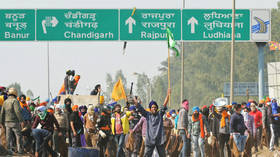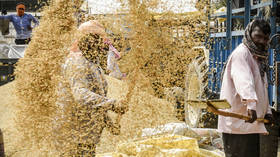‘We feed the nation’: Indian farmers hit the streets on election eve. What do they want?
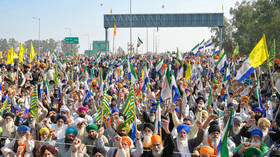
At 8am at the Shambhu border, a crossing between the northern Indian states of Punjab and Haryana, Daya Singh, 35, fixed his blue headgear and prepared for a day-long sit-in to join hundreds of farmers protesting at the site to demand guaranteed minimum price for crops. Like hundreds of other farmers, he has been sleeping in his tractor trolley for the last five days after volunteering for different tasks at the protest.
“We are forced to hit the streets. we want protection for our crops,” Singh told RT.
This comes at a crucial juncture in India, as the general election, in which Prime Minister Narendra Modi’s party is expected to win a third term, is approaching in a few months.
The farmers’ vote will have an impact. Agriculture employs around 58% of the country’s population and accounts for about 18.3% of India’s GDP at current prices. Its market size is estimated at $372.94 billion in 2024, and is expected to reach $473.72 billion by 2029. India is the world’s second largest producer of wheat, rice, and sugar.
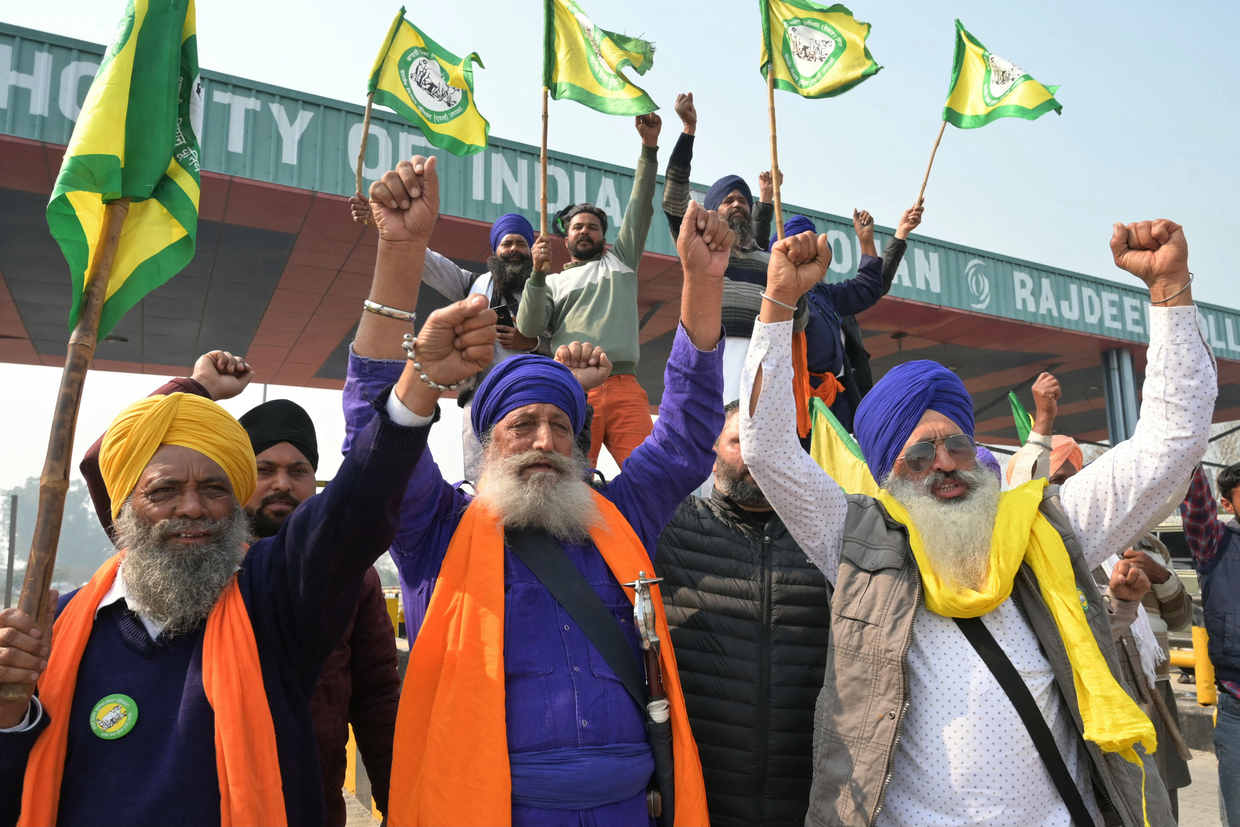
Old Promises
This is the second time since 2020 that thousands of north Indian farmers are on the roads urging the federal government to fulfill their demands, mainly legislation that would guarantee a minimum sale price (MSP) for 23 crops.
More than 200 farmers’ unions are supporting the protest, saying the government has not made progress on its promises made in 2021 regarding their demands.
In 2020-21, a 13-month-long agitation forced the ruling BJP government to repeal three farm laws that it justified as modernization of the agriculture sector. The farmers resisted the move with a lengthy agitation, fearing domination by corporate players.
While repealing the laws to end the agitation, the government in December 2021 said it would try to find ways to ensure support prices for all produce. Farmers say this has not been fulfilled yet. This has forced them to launch a new protest march, according to Singh, who grows multiple crops and owns 12 acres of farmland in Punjab’s Gurdaspur district.
“A farmer like me whose livelihood for generations is dependent on crops wants some financial security. We see an uncertain future,” he told RT, adding that the government should not stop the march to the capital, New Delhi, and allow them to proceed.
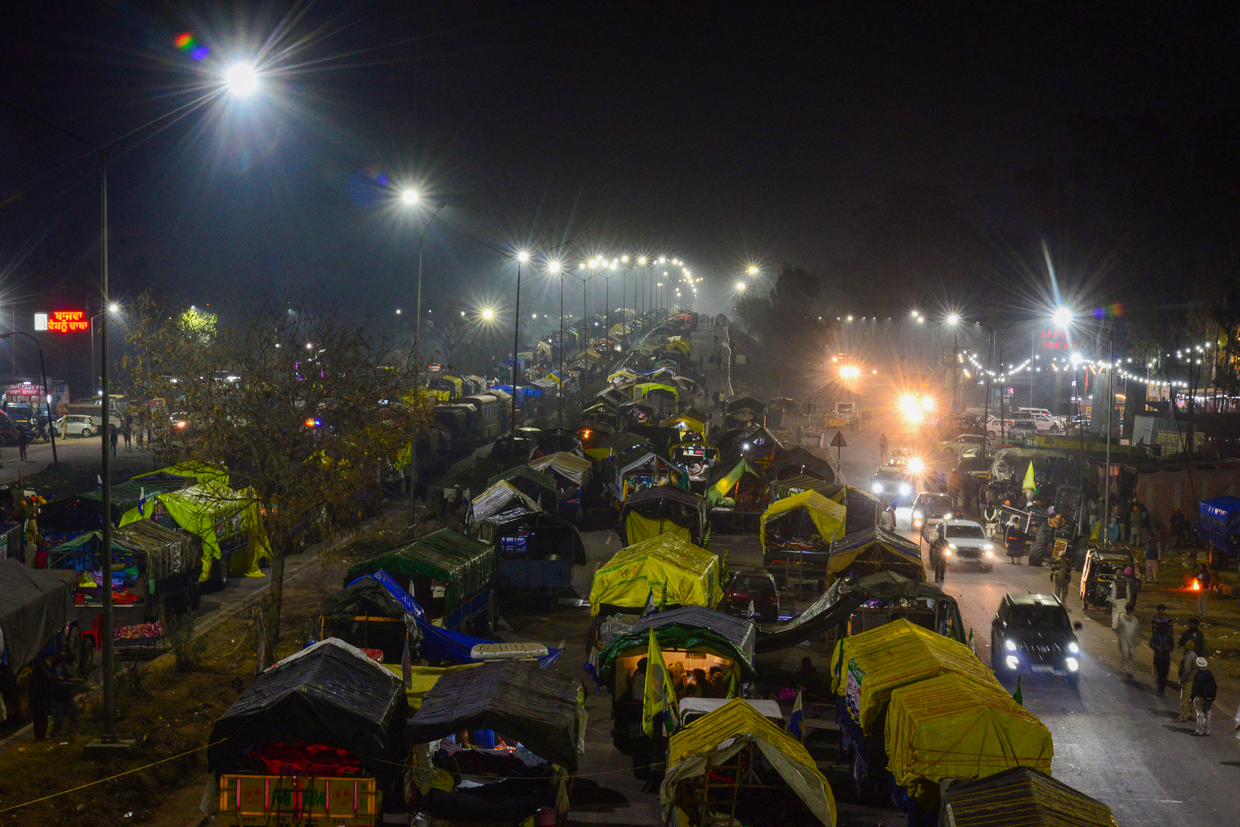
Singh justified the protest by saying the country is dependent on farmers and their welfare is paramount to the country’s progress. “We came here leaving our families because our situation is distressed.”
Another farmer, Harpreet Singh from Hoshiarpur in Punjab, said the government must honor its promise to double their incomes. “Why can’t farmers demand a decent life and income?”
“The market rate of crops has increased just 2-3 times in the last three decades and if we see other produce in the market, everything is getting expensive each year,” he said, adding that the government is suppressing the farmers under loans and debt that they demanded be waived.
Harpreet said the costs of cultivation have jumped while incomes have not seen any improvement. “The government must ensure that the farmers make a good profit on the crops.”
March to Delhi
The farmers began the latest protest on February 13, when thousands from Punjab and Haryana arrived in their tractors at the highway connecting the two states to march to New Delhi.
The protesters were stopped at the Shambhu border between Punjab and Haryana, around 230km from New Delhi, by the Haryana authorities, who sealed the border with metal and cemented barricades and stationed hundreds of police and paramilitary troopers to guard the entry points. Though the protesters are stuck at a distance from New Delhi, the border between Haryana and the capital city was similarly barricaded, which led to traffic jams in New Delhi – something which has not made residents of the city sympathetic to the farmers’ cause.
The police used drones to drop tear gas canisters on protesters attempting to march to New Delhi. Dozens were injured, some of whom are being treated in Punjab hospitals.
“This government is trying to suppress us using force but we will not be silenced,” said a farmer from Haryana, declining to be identified. “Our children are leaving India for foreign countries because they do not see a future in farming or related sectors here. We are losing our identity.”
With the Punjab diaspora so large and widespread globally, it is not difficult to emigrate – the most common method is chain migration (where people join relatives or brides/grooms already settled in the West). There have also been documented cases in which farmers have sold their landholdings so that a relative could pay off human traffickers.
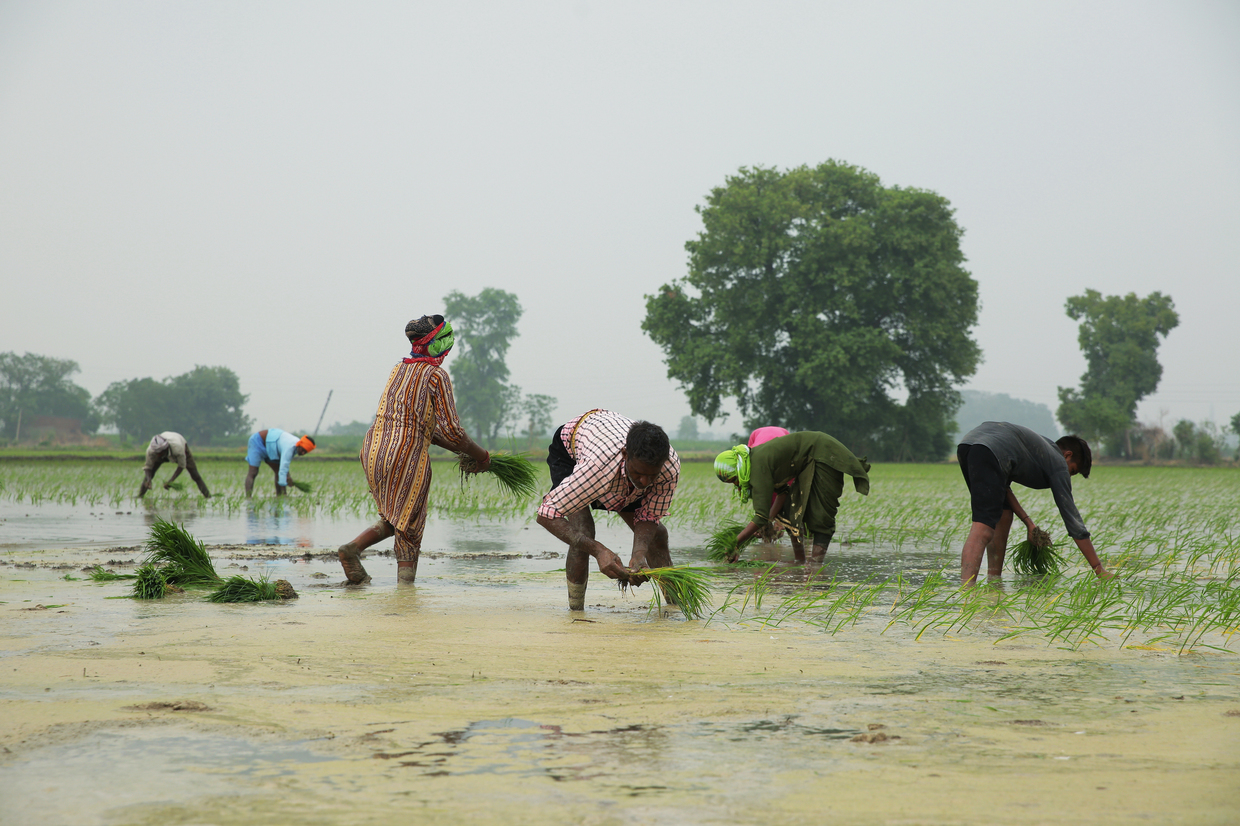
At present, the government protects agricultural products from sharp drops by setting a minimum guaranteed price for 23 crops to protect the interests of the farmers. But in actual practice, it is only followed for two – rice and wheat – which are bought by the government for public distribution through its network of public distribution shops. The farmers are unhappy with the current system and want all their crops to be protected under MSP.
This is "the crux of the entire issue," according to Dr. Satbir Singh Gosal, vice chancellor at Punjab Agricultural University (PAU), Ludhiana. “If farmers try to diversify and grow something else, the produce is not procured in the ‘mandis’ [wholesale markets] and they are forced to sell it to private sellers at rates lower than the MSP,” Dr. Gosal said in an interview.
He added that the situation could change greatly if farmers are given assured MSP on at least crops such as cotton, maize, sugarcane, oilseeds, basmati, and pulses, as only then they will be encouraged to adopt diversification. “The assured MSP on these crops, which are the most viable alternatives to wheat and paddy, will help in reducing the area under paddy. It will not only save groundwater but also reduce stubble burning,” Dr. Gosal said.
The farmers are also demanding the withdrawal of legal cases against farmers for the 2021 protests, and pensions from the government for those over 60.
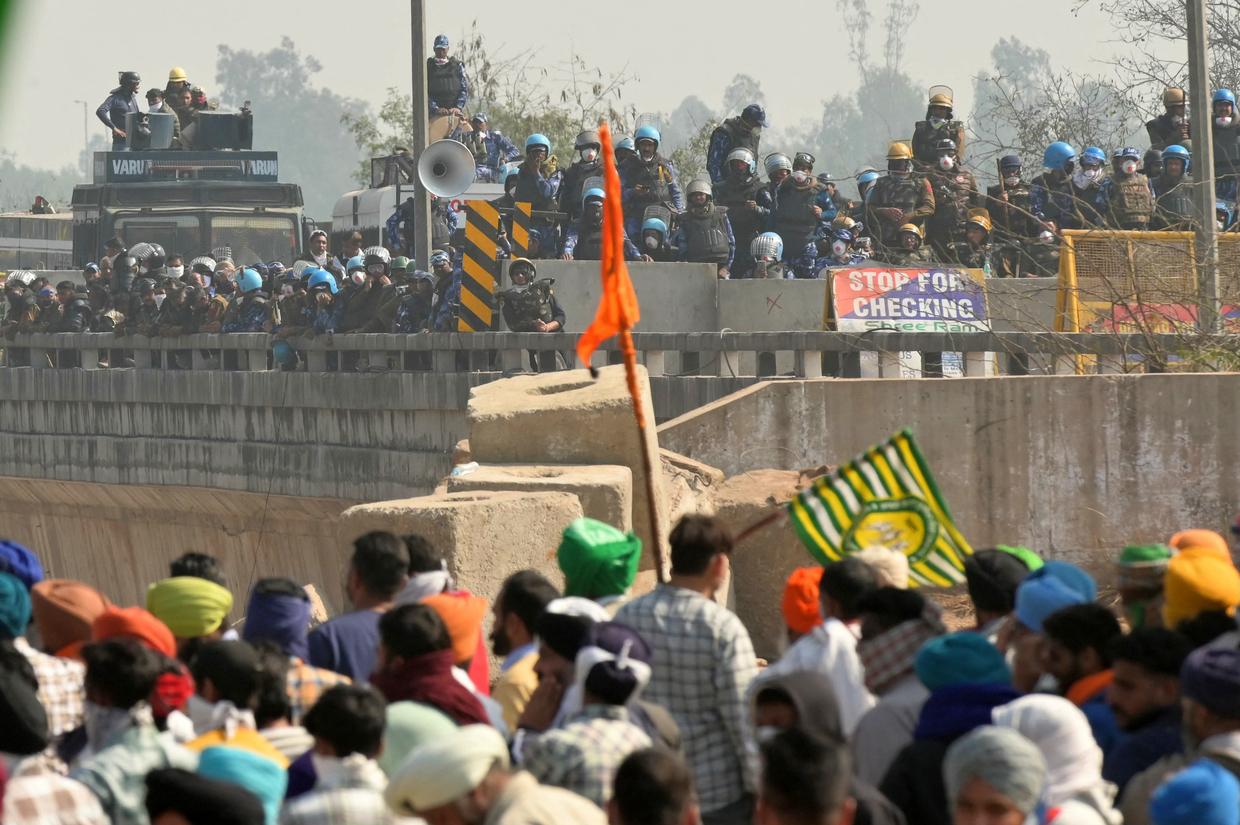
What’s next?
So far, several meetings have taken place between the farmers and the government, but there has been no end to the deadlock. Indian Agriculture Minister Arjun Munda, while meeting with the farmers’ leaders, said there was a positive response from both sides and a peaceful solution is being worked out together.
He emphasized that rushing into enacting a law to guarantee minimum prices for crops without consulting all stakeholders would not be feasible. He has also urged protesting farmers to remain vigilant and cautious of certain elements that might seek to exploit their movement for political gains, thereby tarnishing its integrity.
Another round of talks between the farmers and the government will be held on Sunday. The future course of action will be decided after the leaders return from the talks and consult with the farmers.
Sukhdev Singh, a farmer from Amritsar, said the farmers’ lives would drastically change if they were guaranteed financial security. “This is a peaceful protest,” Sukhdev said, adding that they are talking to the government and want to find a solution. “This is not the issue of Punjab. This is for the farmers of all the country.”
At the protest site, while eating paratha (a form of bread) and dal (a lentil-based dish) prepared by the volunteers, Paranjeet, a protester from Haryana, said the crowd will continue to swell with each day. “This country is fed by us and we cannot be ignored,” he said with a smile.
